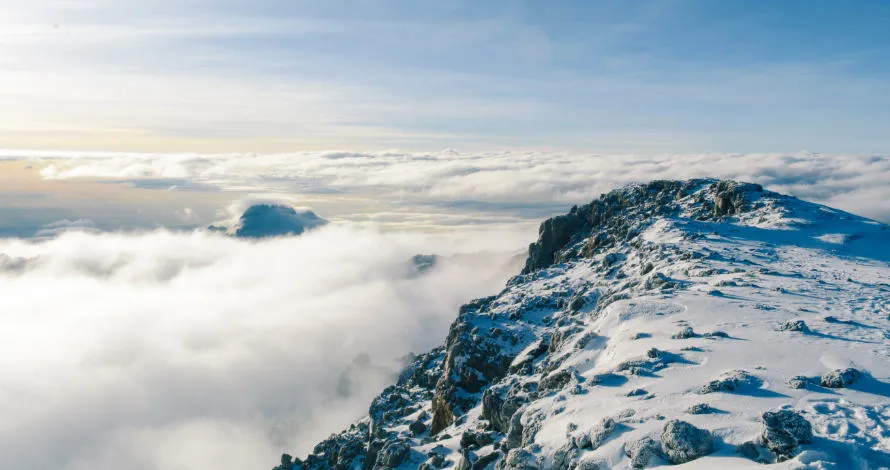One day back in 2003 I decided to climb Mt Kilimanjaro. It was ‘out of the purple’. I wasn’t a hiker. I hadn’t climbed mountains before and the number of times I’d been camping was probably less than 10.
I signed up with a mountain guiding company and went to their information night where they told us what to expect.
One of the first things they tell you about is HAPE (high altitude pulmonary edema) and HACE (high altitude cerebral edema). These are terrible enemies of high altitude hikers and mountaineers.
One of the people I was going to be climbing with asked what HAPE and HACE felt like so that he would know what signs to look for. I remember someone at the information evening answering this by saying:
Look, at over 5,000m in altitude you aren't going to feel great. Your head will probably be pounding with a terrible headache. You’ll be out of breath and you’ll feel extremely tired throughout your summit push. You might not have HAPE or HACE but you won’t know. You’ll feel like sh*t but only you will know whether to push on or not.
Hmmm, not words that inspire confidence when you’ve only ever been at that altitude in an airplane.
I’ll end the Kilimanjaro story there. After all I wasn’t climbing Everest, but there is a valuable lesson here for startups.
When the going gets tough, and you aren’t feeling great, you need to push on. The summit is worth the pain.
Startups are very rarely easy and never straightforward.
Look at the likes of Airbnb with their 1,000 day “overnight success”, or Tesla and SpaceX needing Elon Musk to invest what remained of his life savings into these businesses to keep them alive in 2008.
As a company with a fair amount of experience developing startups for non-technical founders, and starting our own businesses, we’re immersed in startup theory.
Our blog is dedicated to advice as well as hints and tips on how to start a startup, ways to save money, what you should focus on in the early days, startup growth & marketing tricks and more.
Startup theory is important. Having a base of knowledge on the theory will help you make better decisions. It helps you to evaluate your own ideas and strategies and to question them.
However, there is one thing that neither blogs nor the best startup advisors can teach you.
It’s called doggedness (I could have used force of will, drive, tenacity, etc).
That instinct to keep pushing when things get tough. That drive to get up and keep trying when you get knocked down. That persistence to keep knocking on the door of your target audience until you find product-market fit (I don’t mean literally knocking on their doors, although if you can without getting into trouble then do it).
The bravery to pivot and chart a new course if the current one is going nowhere. The ability to work hard and keep pushing when you have no structure, nor any clearly defined assignments, in your role as a startup founder.
The Airbnb founders are famous for this trait. In an interview with Reid Hoffman (LinkedIn Founder) about scaling Airbnb, Brian Chesky (one of the Airbnb founders) said this about Paul Graham from YCombinator:
He told us we were the cockroaches of startups, that we could survive anything. This was the best compliment we had ever gotten. We were cockroaches.
You either have it or you don’t. It may not have been something within you through your life to this point but it might switch on if you start working on a startup that you have real passion for.
Startup founders need thick skins. They need to be creative. They need to be inquisitive and most important they always need to be pushing their startup forward.
Those that do often summit. Those that don’t usually fade away.
Startup Application Developers in Australia
Launch Lab develop startup applications, using AWS, Python and React.js, for non-technical founders in Australia. We look after the technical development of your product so that you can focus on building the business.
If you are ready to work hard on a startup we’d love to work with you. Contact us.
